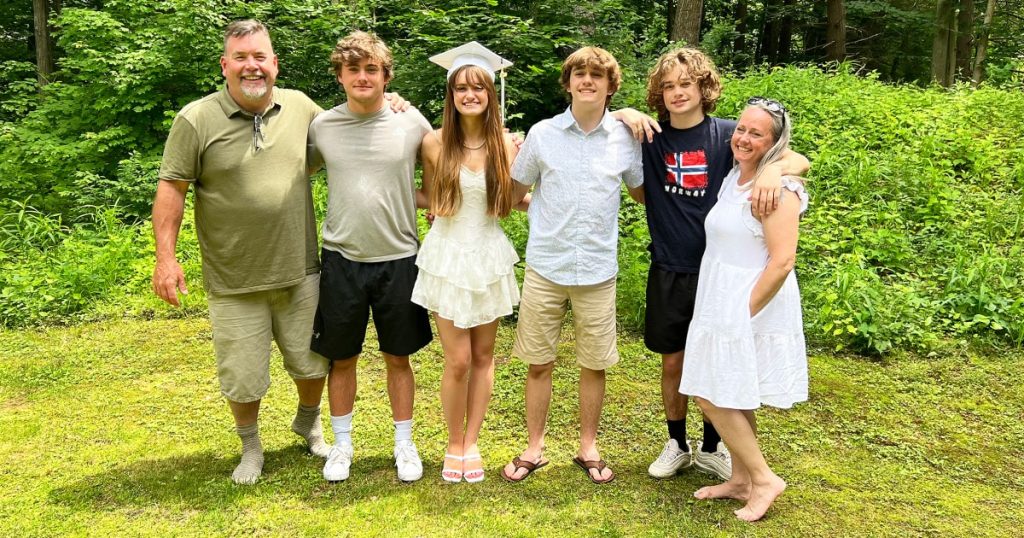A 54-year-old father from New Hampshire is hospitalized and fighting for his life after contracting three different mosquito-borne viruses: eastern equine encephalitis (EEE), West Nile virus, and St. Louis encephalitis. Joe Casey of Kensington, New Hampshire, became ill on August 8, 2024. He was disoriented, had a fever, and was brought to the hospital where his condition rapidly deteriorated. Casey ended up in the intensive care unit unable to move or speak, with swelling and fluid in his brain detected through MRIs, indicative of encephalitis.
Encephalitis is a serious and potentially fatal condition where the brain swells due to inflammation, and it can be a complication of all three viruses Casey contracted. Testing revealed that he had antibodies for EEE, West Nile virus, and St. Louis encephalitis, although doctors are still unsure about which virus is causing his symptoms. EEE is of particular concern with a mortality rate of about 30%. Those who develop severe neuroinvasive disease from these viruses may face long-term mental or physical disabilities even if they recover, underscoring the severity of Casey’s situation.
While Casey’s condition has shown some improvement, with the removal of his tracheostomy and signs of progress in physical and speech abilities, he remains in the hospital and faces a long road to recovery. His family is hopeful for a full recovery and emphasizes the importance of raising awareness about the risks of mosquito-borne viruses and taking precautions to prevent insect bites. Casey’s illness highlights the potential dangers posed by these viruses and the impact they can have on individuals and families.
The recent cases of mosquito-borne viruses in New Hampshire, such as Casey’s and a previous fatality reported, serve as a stark reminder of the increased activity of these diseases in the United States. West Nile virus has affected hundreds of individuals, with a significant number developing neuroinvasive disease. EEE has also been spreading, particularly in the Northeast region, with several confirmed cases, including the more severe neuroinvasive form. It is crucial for people to be vigilant and take steps to protect themselves from mosquito bites, as the consequences can be life-threatening and have long-lasting effects.
Casey’s family has been heavily involved in his care, with his wife, Kim, spending long hours at the hospital alongside close family members. Their devotion speaks to the strong bond within the family, with Casey being described as valuing his family above all else. As he continues his recovery journey, the hope is for his brain swelling to subside completely and for him to regain full health. The lack of specific treatments or vaccines for these mosquito-borne viruses underscores the challenges in managing such illnesses and the importance of supportive care.
The impact of mosquito-borne viruses on individuals like Joe Casey emphasizes the unpredictable nature of these diseases and the need for heightened awareness and preventive measures. As cases continue to emerge in various states, it is crucial for people to take precautions when spending time outdoors, especially during peak mosquito activity periods. By being vigilant, using protective clothing, insect repellents, and other preventive strategies, individuals can reduce the risk of contracting these potentially life-threatening illnesses. Casey’s family’s advocacy for awareness and caution in outdoor activities serves as a poignant reminder of the importance of protecting oneself from mosquito-borne diseases.


